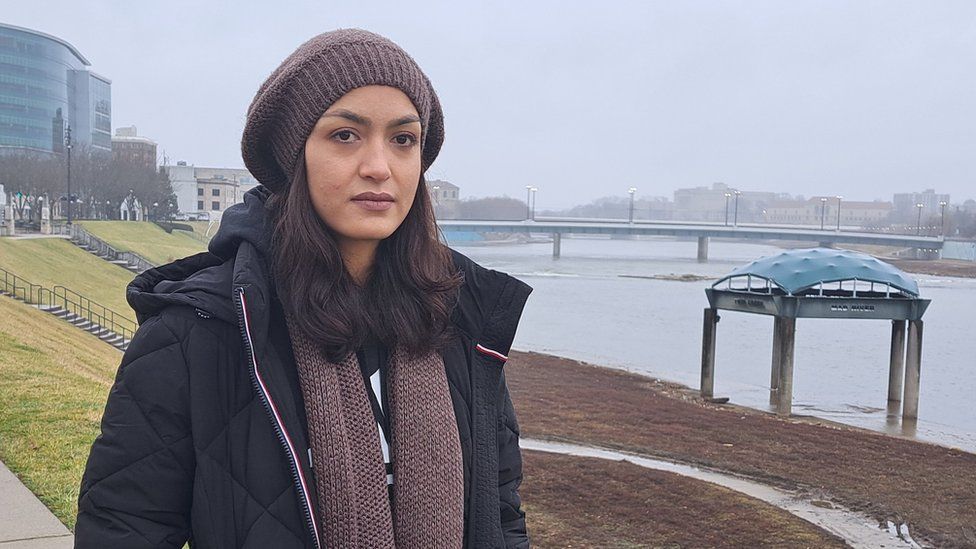
It has been a year since 76,000 Afghan nationals were resettled in communities across the US, but their stories – especially those of the female journalists who fled home – are still untold, reports Stephen Starr for the BBC.
For five years, broadcast journalist Basira Joya spent her days researching guests and preparing interview questions for the television news show she anchored in Kabul.
But when the Taliban swept through the Afghan capital in August 2021, everything changed.
“After I wrote an article and posted it on my Facebook page, I started getting calls from the Taliban, so I went into hiding,” she told the BBC. For weeks she was forced to move from house to house with her brother to avoid being found.
Seventeen months on, Ms Joya, 24, finds herself in a very different place. Gone is the life of interviewing politicians and keeping up with the latest breaking news in Kabul. Today, home is 7,000 miles away in Dayton, Ohio.
And though Ms Joya has escaped the Taliban, she still feels stuck.
She spends up to 12 hours a day, six days a week working at a manufacturing plant – work, she said, that is mind-numbing and back-breaking. While Ms Joya is not required by her employer to work so many hours, she says she has little choice.
“I need to work to help my family,” she said, six of whom, including her parents, live in Takhar province in north-eastern Afghanistan, which was captured by the Taliban in June 2021.
“I don’t like this job at all, but due to economic problems, I have to work to send money to my family, because they are in a worse situation in Afghanistan,” she said. “Here I can earn.”
It has been one year since the US government announced that the tens of thousands of Afghan nationals in its care following the chaotic military pull-out from Afghanistan had been resettled in host communities across the country.

While dozens of highly-skilled, renowned female Afghan journalists managed to escape the country before and during the Taliban takeover, few have been able to continue their work as reporters.
“They have left their country in such a traumatising way. They have lost everything they had,” said Zahra Nader, a Canada-based, Afghan journalist who last year founded the online newspaper Zan Times.
“And when you have worked so hard to become a journalist (in Afghanistan), you are proud of what you did. Then suddenly that is taken away from you.”
Ms Nader, who reported for the New York Times in Afghanistan and faced similar difficulties when attempting to continue her career after moving to Canada in 2017, said that since she started Zan Times, she has been inundated with requests from female journalists in exile looking for work.
“They are all professionals, and there are stories to tell,” she said. “But unfortunately we don’t have any resources to pay them.”
For Mariam Alimi, a photographer from Kabul, her favourite experiences behind the camera saw her travelling Afghanistan depicting its people and places.
Working as an editorial photographer for outlets such as the Washington Post and London Times during a 15-year career, the 42-year-old said she used her camera to tell stories of Afghan women breaking barriers in business and sports at a time when the wider narrative was one of conflict and loss.
“I have shot some amazing pictures that have amazing stories behind them,” she recalled.
Today, Ms Alimi’s life looks quite a bit different. Having fled the Taliban takeover, she arrived in the US in October 2021, and following a stint in New Jersey, now lives in Maryland. Like Ms Joya, her journalism career has ground to a halt.
“When I came here, I saw a different picture,” she said. “It has not been easy to get a job that I’m looking for.”
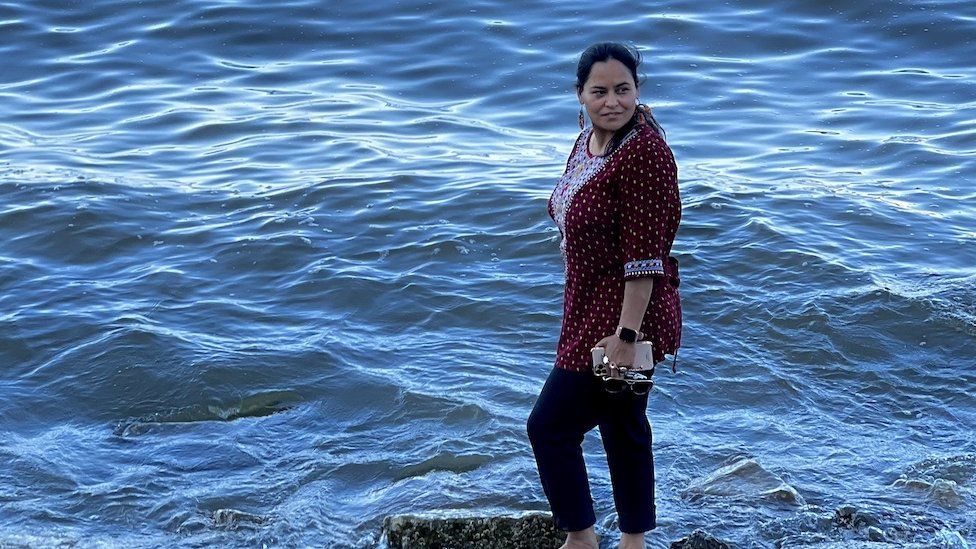
These days, she works at a senior living community. “I’m enjoying the job, keeping people happy,” she said. “But of course, not as much as I enjoyed my job working with my camera.”
To help reboot her career, Ms Alimi said she needs to get a driving licence and start making contacts in the photography world. She said she’s lucky that her family have all moved from Afghanistan and are now in the US.
But in Ohio, Ms Joya’s lot appears decidedly more difficult. She said it has been painful to look on from afar as the Taliban banned women from attending universities and from working with non-governmental organisations (NGOs) in December.
All the while, she spends up to 72 hours a week working on a factory floor to support herself – at a time of near-record inflation in the US – and her family in rural Afghanistan. Her father, a police officer before the Taliban came to power, recently had to travel thousands of miles to Iran for eye surgery.
“It cost $2,000 for that surgery, so I have to help them financially because they don’t have any money,” she said.
Ms Joya is learning English and has not given up on her goal of continuing her journalism career. She has reached out to several Afghan news broadcasting organisations based in Washington DC and London, though none have indicated there may be a position open for her.
“It’s still my dream to be a journalist,” she said.
“It’s still something I want to do.”
More like this:
This video can not be played
To play this video you need to enable JavaScript in your browser.
Related Topics
-
-
27 January
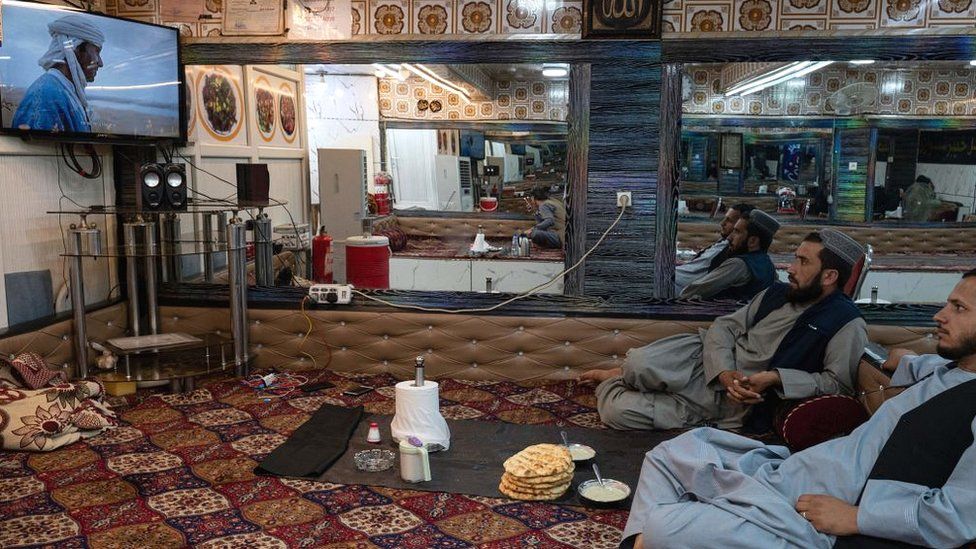
-
-
-
24 December 2022
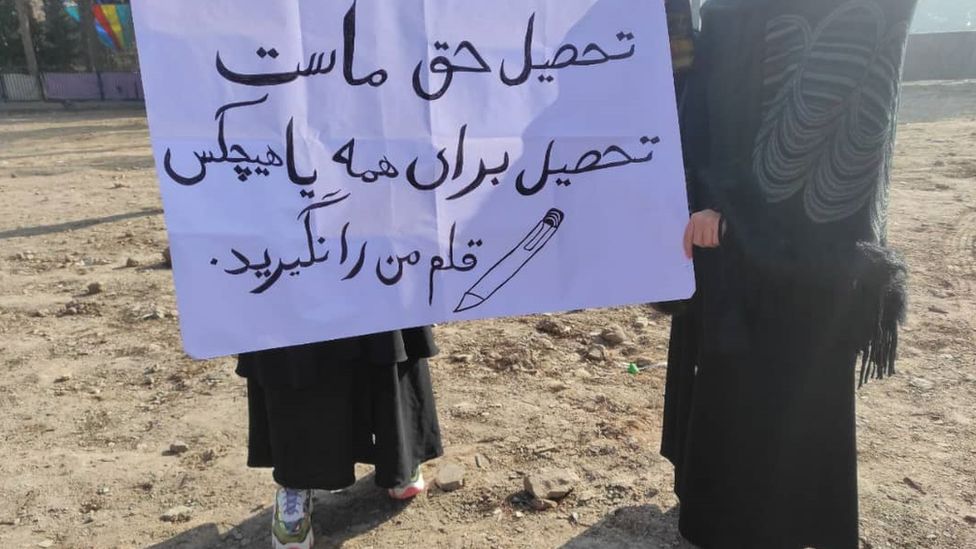
-
-
-
28 December 2022
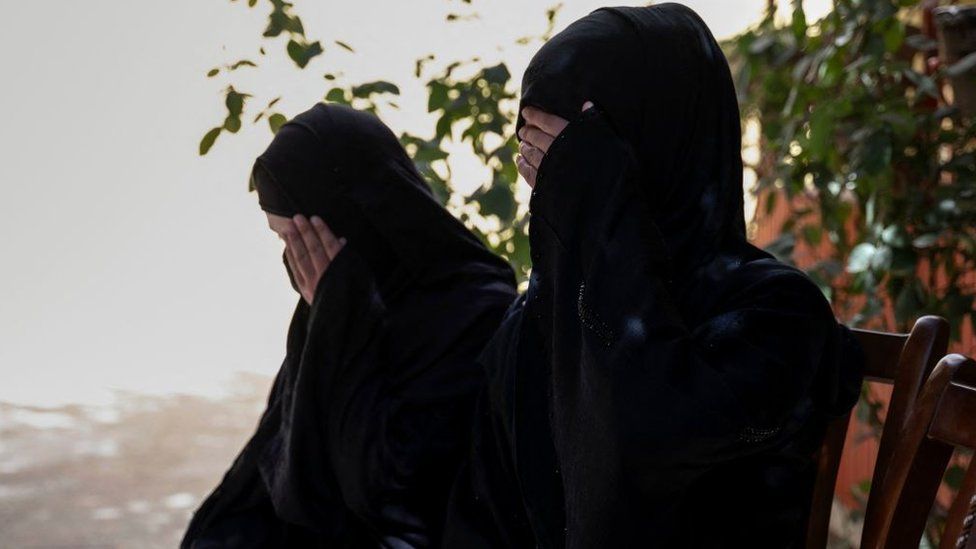
-

